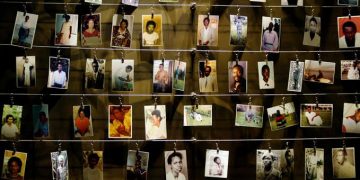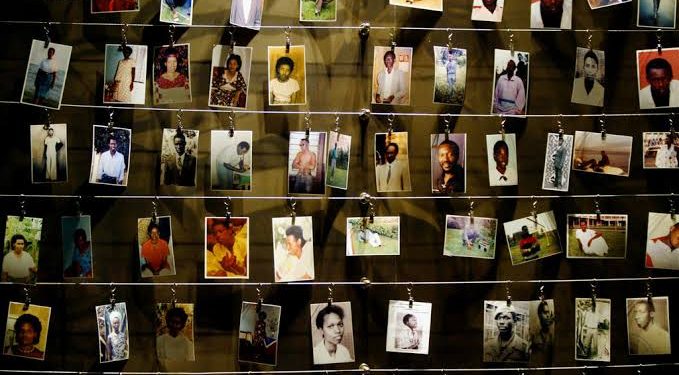By John Ikani
Rwanda is commemorating the 28th anniversary of the 1994 Genocide against the Tutsi in which over a million people were beaten, hacked, and shot dead in a hundred days of slaughter.
The genocide was sparked by the death of the Rwandan President Juvenal Habyarimana, a Hutu, when his plane was shot down above Kigali airport on 6 April 1994.
Flags are being flown at half-mast while a subdued memorial at the Kigali genocide memorial where President Paul Kagame is expected to lead the nation in mourning the genocide victims and light a remembrance flame on April 7 (today).
The Kigali Genocide Memorial is where more than 250,000 victims of the genocide rest.
The national mourning will last for a week until April 13 while commemoration activities will go on until July 3, ahead of the celebrations for Liberation Day on July 4. The national event can also be followed on digital platforms.
Twenty-eight years on, the anniversary comes as Rwanda recovers from the Covid-19 pandemic shocks that have restricted public gatherings and events.
Events such as the “Walk to Remember” and the mourning vigil were cancelled to limit the spread of the Covid-19 virus. The events used to attract thousands of people from Rwanda and across the world
Reflections
This year’s commemoration message will focus on fighting against the genocide ideology and educating the country on what led to the 1994 Genocide against the Tutsi.
Naphtal Ahishakiye, the Executive Secretary of Ibuka, the umbrella body of genocide survivors’ organisations, on Wednesday, April 6, told The New Times that the whole world needs to understand that commemorating the genocide against the Tutsi is “necessary.”
“We request the entire world to collaborate in this continued fight against genocide denial. It is also important for the world to understand that justice is key. Countries that continue to give genocide suspects safe haven need to think twice. Countries that have no laws punishing the crime of genocide need to enact them and act accordingly,” Ahishakiye added.
“During this Kwibuka we shall also continue advocating for the interests of genocide survivors; including their safety and welfare as well as push to see that [judicial] cases not decided are concluded so that justice is served.”
Jean-Damascène Bizimana, the Minister of National Unity and Civic Engagements, told The New Times that on April 7, the main message for the world includes a reminder that nearly two decades have passed since the UN General Assembly resolved that every year, April 7 be designated as the International Day of Reflection on the 1994 Genocide against Tutsi in Rwanda.
“The world needs to remember that the Genocide happened when the United Nations had deployed a force to represent it, the UNAMIR (United Nations Assistance Mission for Rwanda) but these forces also were not well equipped in terms of arms, in addition to legally, because they did not have the mandate to use arms to protect civilians from being killed. This is why the government army of the time and the entire government machinery was able to carry out the genocide unimpeded by UNAMIR,” he said
Goodwill Messages
Several world leaders and officials have joined Rwanda in remembering, including UN Secretary-General Antonio Guterres.
“The genocide against the Tutsi in Rwanda was neither an accident nor unavoidable. As we remember the bloodshed 28 years ago, we must recognise that we always have a choice. To choose humanity over hatred, compassion over cruelty, courage over complacency,” the UN Secretary-General said in a statement.
“Today of all days, we must recognise the dangers of intolerance, irrationality, and bigotry in every society. As we look back with remorse – let us look ahead with resolve. Let us commit to being ever vigilant and to never forget.”
British High Commissioner to Rwanda, Omar Daair, said, “My thoughts are with the Rwandan people on the 28th commemoration of the Genocide against the Tutsi. We must honour the memory of all those who were killed and stand with the survivors. And we must all work to ensure that such atrocities never happen again, anywhere.”

































